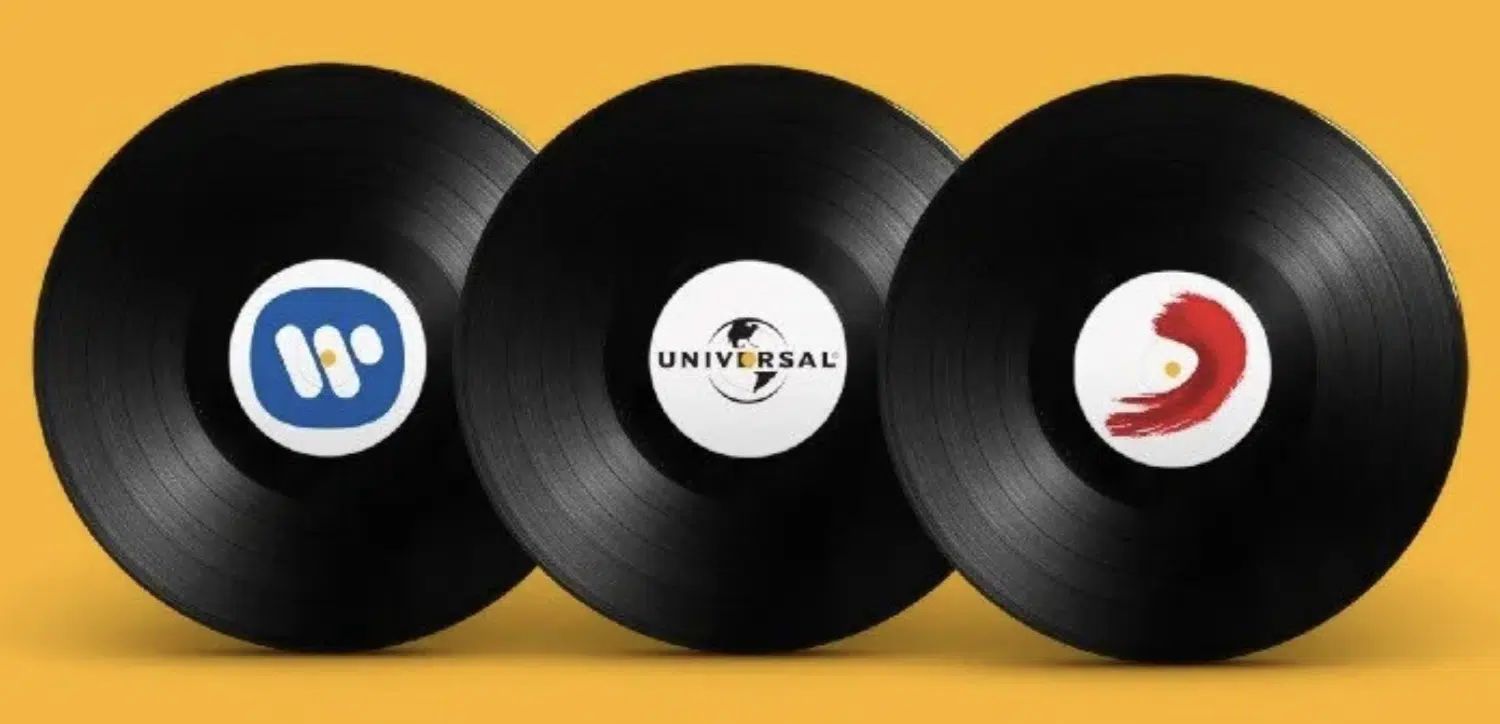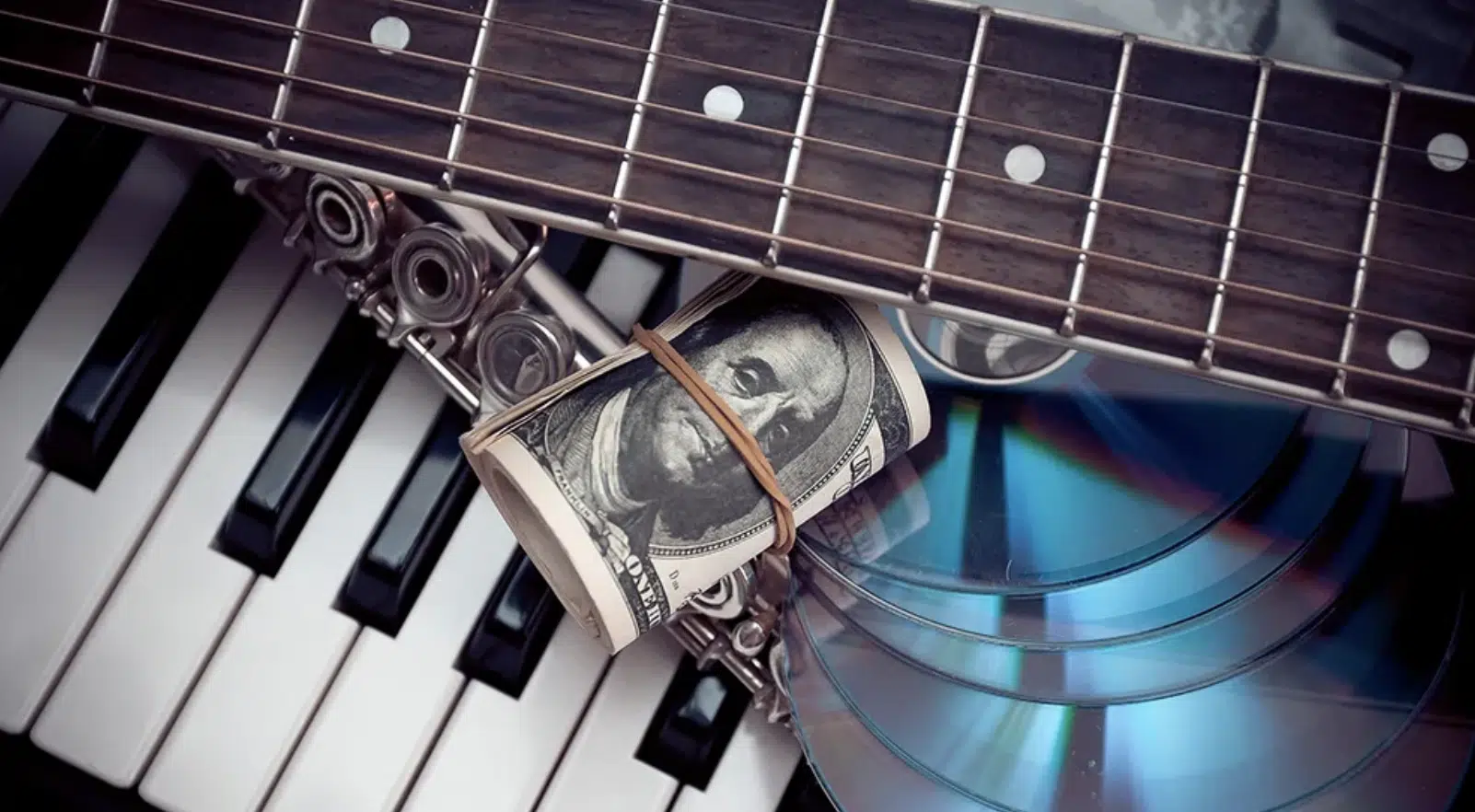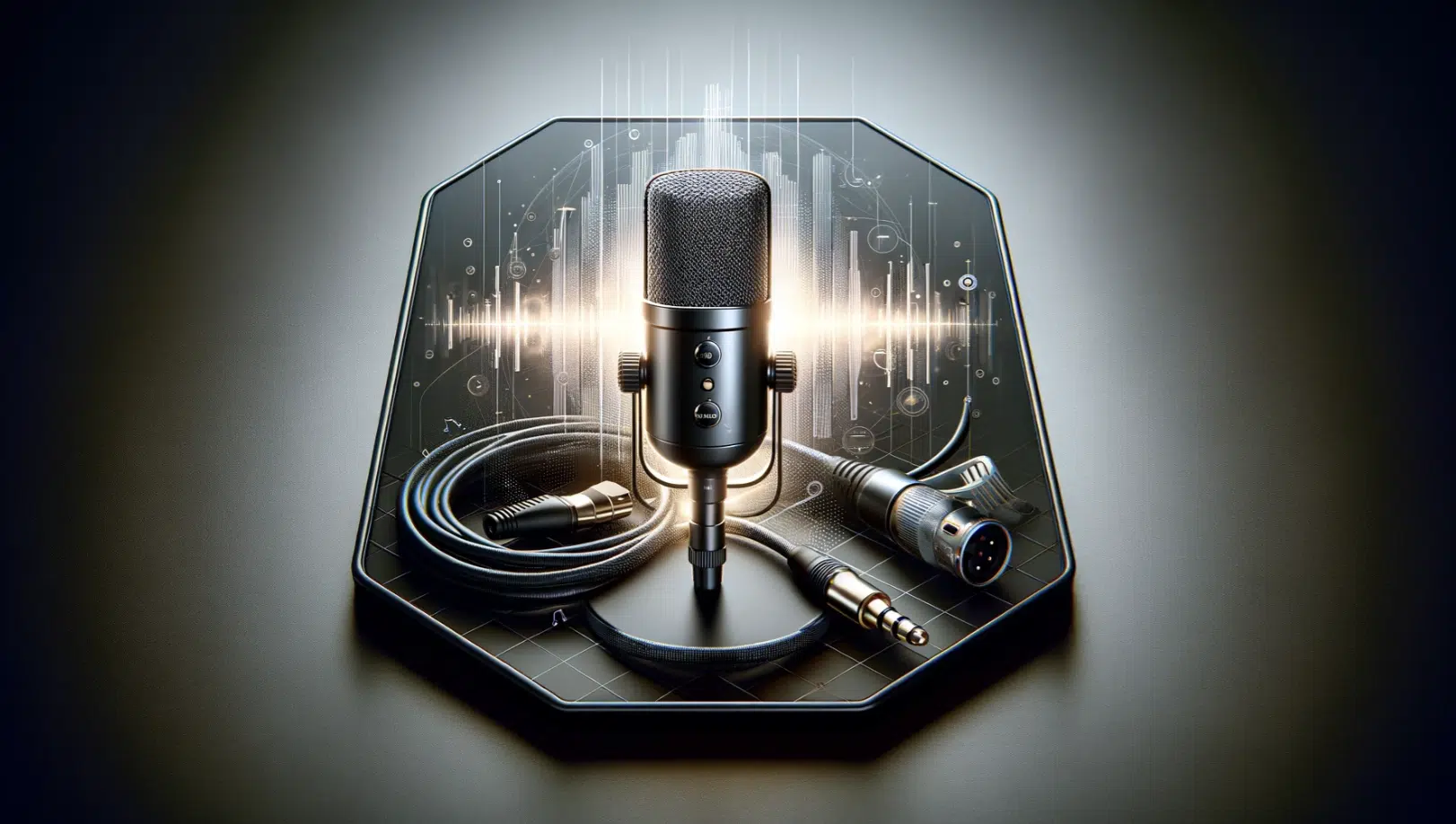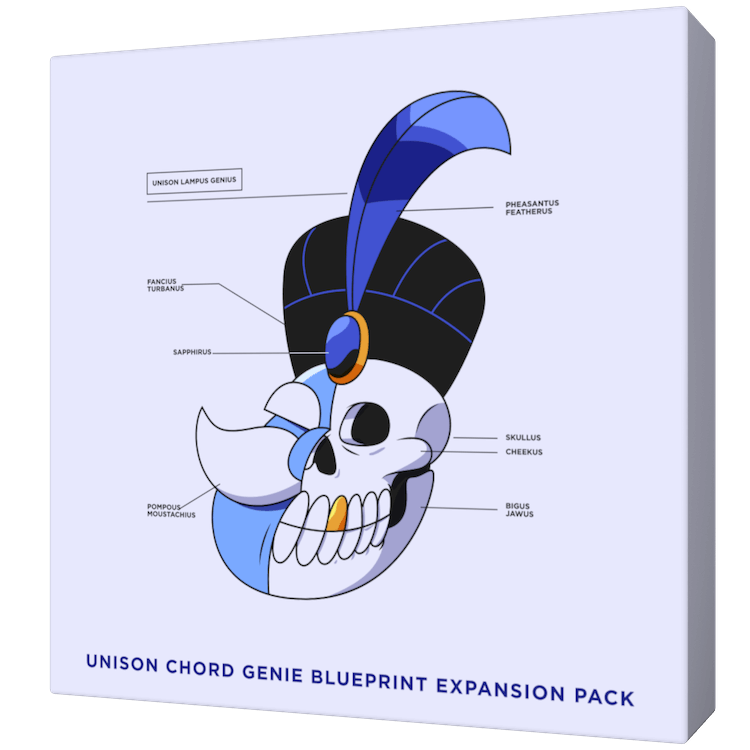As an independent artist, understanding all the contract types in the music industry, including 360 deals, is super important.
These deals can be complex, but understanding them inside and out can make a huge difference to your music career.
So, we’ll be breaking down everything you need to know about 360 deals 一 from what they include to how they can impact your earnings and career growth.
Plus, we’ll share pro tips on negotiating your contract to ensure it benefits you in the long run and you don’t get screwed.
In today’s article, we’ll cover:
- What is a 360 deal ✓
- Key components of 360 deals ✓
- Differences between 360 and traditional deals ✓
- Advantages for independent artists✓
- Potential downsides ✓
- How to make a 360 deal work for you ✓
- Understanding the financial aspects ✓
- Negotiating tips for artists ✓
- Deciding if a 360 deal is right for you ✓
- Much more ✓
You’ll have a solid understanding of 360 deals (and traditional deals) 一 helping you to manipulate these agreements like a pro.
Whether you’re considering signing one or just want to be informed for the future, you’ll be able to make decisions that align with your unique career goals.
Side note, we usually cater primarily to music producers and sound designers, but today’s all about independent artists.
So, let’s dive in…
Table of Contents
What is a 360 Deal?

A 360 deal is a type of contract between an independent artist and a music company, like a record label.
In simple terms, it means the record company gets involved in every part of your music career, not just your albums or songs.
This includes any money you make from:
- Concerts
- Appearances
- Merchandise
- Seals you make with other record companies to promote their products
- Etc.
The “360” in the name simply stands for the full circle of your music career that the label is part of (which will be pretty much everything).
This kind of deal has become more common because the way people buy and listen to music has changed a lot.
Now, with streaming services and digital downloads making money just from album sales isn’t as easy as it used to be 一 basically, it’s impossible.
So, major labels and artists found other ways to learn, with the 360 deal putting all these different ways of making money together in one agreement.
For independent artists, a 360 deal can be a big help because it means getting support from the label in many different areas, not just making music.
The label can help promote your concerts, design and sell your merchandise, and find companies that want you to endorse their products.
But, it also means the label gets a share of almost every way you make more money.
So, it’s important for you guys, as artists, to think carefully and understand all parts of a 360 deal before signing one.
Breaking Down the Components of a 360 Deal
When we talk about what is a 360 deal, we’re referring to a contract that includes nearly every aspect of an artist’s revenue-generating activities. Let’s break down these components to understand better what they entail and how they impact an artist’s career.
-
Record Sales/Music Sales

An artist’s music sales/record sales are the center of what 360 deals represent.
Meaning, the record label would have a right to a portion of the revenue from all your digital sales (and any physical copies) with your name on it.
Just keep in mind, since streaming platforms have officially taken over, maximizing music sales now requires a strategic approach to digital marketing and distribution.
For instance, using audio compressors and other essential production tools to enhance sound quality can help connect with listeners and boost music sales.
For example, major labels often collaborate with new artists to plan releases around key dates and marketing opportunities, which will help optimize visibility and sales.
A good example would be when a musician drops a new album just ahead of a major tour or festival appearance, using the live event to drive album sales and get people super excited.
It demonstrates how labels like Roc Nation and artists can work together within the framework of a 360 deal to maximize music sales and hype.
Just think of everything your favorite artist does and picture that for reference.
-
Music Publishing

Music publishing refers to the earnings from the copyright of songs, including royalties from when a song is:
- Played
- Used
- Performed
- Covered by others
Within a 360 deal, the record label may also participate in the artist’s publishing rights, gaining a share of these royalties.
This setup encourages labels to actively promote the artist’s records for placements in films, commercials, and television shows.
It creates an additional revenue stream for both the artist and the label.
For example, a hit song placed in a popular TV series or a viral advertising campaign can generate significant publishing income.
Major labels have the connections and expertise to negotiate these deals, which just goes to show the added value they can provide in a 360 deal context.
NOTE: Always negotiate these terms carefully to ensure you maintain a fair share of your publishing/multiple rights deal and income.
-
Comparing 360 Deals with Traditional Record Deals

Traditional record deals are pretty straightforward: the record label focuses on just your music (making it, selling it, and promoting it).
When it comes to a traditional record deal, they put money into recording your songs and then make their money back from album sales, digital downloads, and streaming.
You, the artist, usually keep the money from concerts, selling T-shirts, and any other merchandise that’s not directly related to your music sales.
On the other hand, 360 deals are like the label being part of almost everything you do to show money.
Besides your music sales, the label also gets involved in your concerts, merchandise, endorsement deals, and however else you make money as an artist.
This means they help you out in more areas, but they also share in the money you make from these other activities.
Here’s the 3 key differences:
#1. Money Source
In 360 deals, labels have more ways to make money with you, not just from your music but also from your concerts and merchandise.
#2. Support
With a 360 deal, you might get more support from your record label in areas like marketing and touring because they have a stake in more parts of your music career.
#3. Flexibility
Traditional deals might give you more control over parts of your career outside of your music, like touring and merchandise, since the label’s focus is mainly on your music sales.
Understanding these key differences can help you decide what’s best for you.
Just ask yourself if you want a partner (record labels) involved in all aspects of your career, or if you prefer to keep some areas solely under your control.
- Pro Tip

Live Nation, known for organizing some of the biggest concerts and tours, can be a game-changer for your music business.
If you were to sign with Live Nation, it can dramatically increase your exposure and profits. However, make sure the terms/contract of Live Nation align with your career goals before making a commitment to the company.
So, be sure to look into Live Nation 一 you never know what business opportunities could come from it.
Financial Aspects: Advances, Revenue Sharing, and Record Label Percentage Breakdowns

When you sign a 360 deal, one of the first terms discussed is the advance (aka the lump sum the record label gives you upfront).
Think of it like a financial boost to kickstart your music career under their wing.
They’ll spend money for recording your album, marketing, a music publisher, and upcoming releases, merch money.
Plus, possibly even covering living expenses so you can focus on your records.
However, it’s important to remember that it’s not a perfect world and this advance from record labels is not free money!
They’ll get it back from your future earnings as you’re technically their independent musician now.
The revenue-sharing aspect of a 360 deal is where things get a little tricky…
Your exclusive contract will outline how you and the major label split the income from various sources:
- Digital music sales
- Streaming
- Physical album sales
- Merchandise
- Live performances
- Branding deals
- Etc.
For example, if you’re a new artist, the label might take a larger share of your recorded music revenues but less from your merchandise sales.
These splits are negotiable and vary between contracts.
For example, a musician who is in a rock band with strong live performance hype might negotiate better terms for live gig revenues when they sign.
-
Pro Tip

Understanding percentage breakdowns is also essential.
For example, if your contract stipulates a 70-30 split on digital sales, for every dollar made, you keep 70 cents, and the major label takes 30.
Negotiating favorable terms here can make a big difference in your earnings, especially in areas where you expect to generate significant income.
Always remember, before you sign with any company, that the contract can benefit you and your records as much as possible.
Music Contracts in The Music Industry: What You Need to Know

When it comes to music contracts like 360 deals it requires attention to detail and a good legal advisor.
No matter how meticulous you think you are, there is a big chance you’ll miss something or lose big time in some area you didn’t even know about without one.
Each contract covers not just your music sales but also touring, merchandise, sponsorship deals, all that good stuff we’ve been talking about.
It’s about understanding not only the percentage splits but also the:
- Duration of the contract
- Rights you’re granting as a new artist
- Commitments you’re making to that company
For example “recoupment” 一 this is the process by which the label recovers the advance it paid you from your earnings before you see any profits.
Knowing the specifics of how exactly that will be done when you’re on this joint venture is non-negotiable (I can’t stress that enough).
You have to be sure it makes sense to you as an artist because the music business could be tricky.
Another key area is “rights reversion,” which dictates exactly when and how the rights to your music revert back to you if the label hasn’t met certain conditions.
This could include things like not promoting your songs or giving you a certain amount of studio time as agreed.
You have to know this stuff like the back of your hand.
-
Bottom Line: Is a 360 Deal Right for You As an Independent Artist?

When you’re learning what is a 360 deal and whether or not to sign on, it depends on several factors that are unique to you/your needs.
360 deals offer a ton of support from your record label in every aspect of your career.
This can be invaluable for new artists looking to break into the music industry and grow their presence quickly.
The label’s resources in marketing, production, and music industry connections can provide a huge kicking-off point.
However, as you now know, it means the record label with profit from virtually every revenue stream you have.
This is typically a huge concern for many artists who can’t picture not having complete control over their music and financials.
So, if you think that’s an awful idea, it’s not for you 一 always follow your heart.
For example, a singer-songwriter who has built a career on personal branding and direct fan sales might find the terms of a 360 deal too restrictive.
They might prefer to maintain control over their merchandise (like hats or carve-outs) and live performance revenues.
Ultimately, the right choice depends on your career goals, your current standing in the music industry, and how much you’re willing to share with a label.
For some, the trade-off of giving a major label a cut from various revenue streams/income streams is worth the investment in their career.
For others, maintaining control and seeking out specific partnerships or deals might be the preferred route.
Each path offers distinct advantages and challenges, and the best choice varies for every artist, so make your choice wisely.
What is a 360 Deal? Final Thoughts
As an Independent artist, you should always be looking for ways to expand your reach and maximize your earnings.
You’ll have to be able to navigate the music industry like a real pro.
And with a 360 deal, you’ll have the opportunity to take advantage of the resources of a record label across every aspect of your music career.
Using the information and tricks from this article, you can manipulate deals with confidence and understand both the benefits and potential drawbacks.
Plus, make the right decisions that align with your unique career goals.
In order to make labels take notice of your music and want to offer you a deal on the spot, you need to check out these show-stopping Free Vocal Samples.
These 20 professional-quality free vocal loops, chops, and one-shots could be that missing piece that elevates your songs to the next level.
These samples could not only enhance your music, but show off your versatility and creativity to labels 一 making you a more appealing artist for 360 deals.
Remember, understanding the ins and outs of 360 deals can significantly benefit you by providing clarity on what to expect and how to ensure it aligns with your aspirations.
So, take this knowledge and go take over!
Until next time…







Leave a Reply
You must belogged in to post a comment.